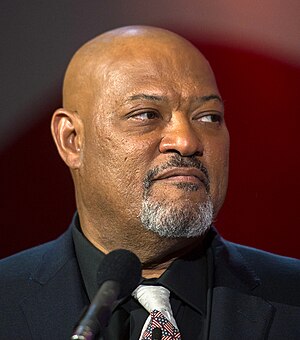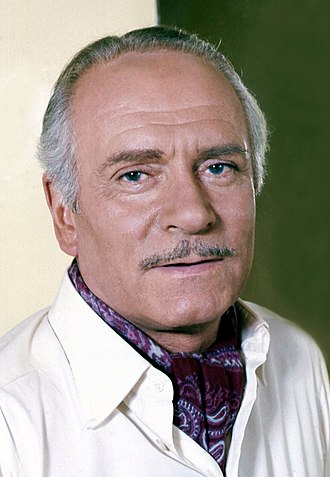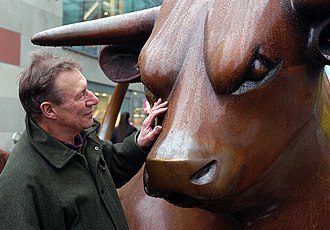Discover Your Roots
SIGN UPDiscover Your Roots
SIGN UPLaurence is an English gender-neutral name, originating from the Latin Laurentius, meaning "man from Laurentum." It is associated with the laurel tree and has been historically used for both males and females in honor of Saint Laurence. In modern usage, Laurence is a masculine name in English and a feminine name in French-speaking countries. The name has variations in other languages such as Lorenzo and Lorenz. It has been a popular masculine name in English-speaking countries since the medieval era and was particularly common in the late 19th and early 20th centuries. As a feminine name, Laurence reached peak popularity in France between 1965 and 1971. Notable individuals with the name Laurence include actors, musicians, politicians, and athletes. The name is also associated with surnames like Ashley Laurence and Margaret Laurence.

Laurence John Fishburne III, born on July 30, 1961, is a highly acclaimed American actor known for his powerful performances on stage and screen, often portraying militant and authoritative characters. His career took off after notable roles in "Apocalypse Now" (1979) and "Boyz n the Hood" (1991), and skyrocketed with his appearances in "The Matrix" franchise (1999–2003) and the "John Wick" film series (2017–present). Fishburne's portrayal of Ike Turner in "What's Love Got to Do with It" (1993) earned him an Academy Award nomination for Best Actor. He has also clinched six Emmy Awards and a Tony Award for Best Featured Actor in a Play for his exceptional performance in "Two Trains Running" (1992). Fishburne's diverse talent is further showcased in films such as "The Color Purple" (1985), "Mystic River" (2003), and "Contagion" (2011). He has also made a mark in superhero franchises, playing significant roles in both the DC Extended Universe and the Marvel Cinematic Universe.Born in Augusta, Georgia, Fishburne moved to Brooklyn, New York, with his mother after his parents' divorce. He embarked on his acting journey at a young age, receiving acclaim for his early roles in theater and television. His career flourished in the 1990s, and he continued to

Laurence Paul Fox, born on May 26, 1978, is an English actor and right-wing political activist. He rose to fame with his role as James Hathaway in the TV drama series Lewis (2006–2015). A member of the renowned Fox family in the British entertainment industry, Fox has made notable contributions to both film and television. His acting career includes roles in films such as The Hole (2001), Gosford Park (2001), and Elizabeth: The Golden Age (2007), as well as appearances in stage productions. However, in addition to his acting endeavors, Fox has been involved in various controversies due to his outspoken political views and activism. He founded the right-wing populist political party Reclaim and stood in the 2021 London mayoral election, where he garnered 1.9% of the vote. Despite his unsuccessful political endeavors, Fox continues to be a prominent figure known for his strong opinions and public statements on political and social issues. Additionally, he embraces a multifaceted career, showcasing his musical talents with the release of albums such as Holding Patterns (2016) and A Grief Observed (2019).

Laurence Kerr Olivier, Baron Olivier, was a prominent English actor and director who, along with his contemporaries Ralph Richardson and John Gielgud, dominated the British stage during the mid-20th century. Born on May 22, 1907, in Dorking, Surrey, he had no family ties to the theater, but his father, a clergyman, steered him towards acting. Olivier's career spanned stage, film, and television, with notable performances in productions such as "Romeo and Juliet," "Richard III," and "Othello." His film credits include "Wuthering Heights," "Rebecca," and several acclaimed Shakespeare adaptations. Olivier's accolades include a knighthood, a life peerage, the Order of Merit, and numerous awards for his on-screen work, including an Academy Award. He was married three times, to actresses Jill Esmond, Vivien Leigh, and Joan Plowright. Olivier's impact on the performing arts is commemorated in the Laurence Olivier Awards and the naming of the National Theatre's largest auditorium in his honor. His legacy continues to inspire and influence actors and directors worldwide.

Laurence Broderick (18 June 1935 – 18 April 2024) was a renowned British sculptor known for his iconic work, 'The Bull,' a monumental public sculpture located at the Bull Ring in Birmingham. This impressive piece, measuring about 4.5 meters in length, 220 cm in height, and weighing approximately 6.5 tons, stands as one of the largest bronze animal sculptures in the country. Broderick's artistic repertoire primarily comprises figurative carvings in stone and editions in bronze.Born in Bristol, England, Broderick pursued his artistic education at various institutions, honing his skills in painting, illustration, and sculpture. Throughout his prolific career, he ventured into historical and educational illustration and painting, later transitioning to become a full-time sculptor in 1981. His dedication to the craft extended to his involvement in the British snow sculpture team, where he secured second place during The Quebec Winter Carnival in 1983.Broderick's deep connection with nature and wildlife, particularly otters, is evident in his extensive body of work. His commitment to otter conservation led him to serve as the joint president of the International Otter Survival Fund, a charity dedicated to the protection and care of otters in the UK and globally.Broderick's legacy extends beyond 'The Bull,' as he has left his artistic imprint through numerous commissions and exhibitions, showcasing his exceptional talent and dedication to his craft. His impact on the art

Laurence Harvey, born Zvi Mosheh Skikne, was a Lithuanian-born British actor and film director known for his refined accent and debonair screen persona. After emigrating to South Africa and then settling in the United Kingdom, Harvey began a successful career in stage, film, and television productions. His breakthrough role in "Room at the Top" earned him an Academy Award nomination for Best Actor. Subsequent notable performances included William Barret Travis in "The Alamo," Weston Liggett in "BUtterfield 8," and the brainwashed Sergeant Raymond Shaw in "The Manchurian Candidate." Harvey also made his directorial debut with "The Ceremony" in 1963. Despite his untimely death in 1973, Harvey continued to act into the 1970s. His early life and career were marked by his family's emigration to South Africa, where he auditioned for the Entertainment Unit of the South African Army during World War II and eventually moved to the UK. Notably, he enrolled in the Royal Academy of Dramatic Art and made his film debut in "House of Darkness" before adopting the stage name Laurence Harvey. His career gained momentum when he signed a long-term contract with Romulus Films, leading to a significant role in "Women of Twilight" in 1952. Harvey's talent and charm solidified his reputation as a captivating leading man in the film industry.
All images displayed on this page are sourced from Wikipedia or Wikimedia Commons.We use these images under their respective Creative Commons or public domain licenses. Wherever applicable, author attributions and license information are provided. If you believe an image is used incorrectly or outside its license terms, please contact us so that we can review and correct the issue.